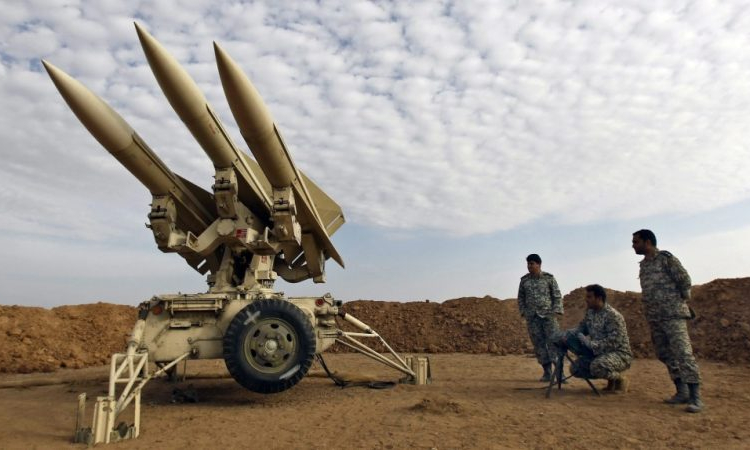Recent revelations from the U.S. Department of the Treasury’s Office of Foreign Assets Control (OFAC) have brought to light a concerning development in Sudan’s ongoing conflict.
The OFAC has disclosed that the Wagner Group, a private military contractor, has been involved in supplying surface-to-air missiles to Sudan’s Rapid Support Forces (RSF) to combat the Sudanese army.
Although the report did not specify the type of surface-to-air missile system Wagner Group supplies to the RSF, however, it may likely be man portable (MANPAD), or short range air defence
The US Treasury Department on sanctioned Ivan Alexandrovich Maslov, the leader of the Wagner Group in Mali, for collaborating with the Russian paramilitary group to disrupt the stability of several African countries.
The “Wagner Group has been supplying Sudan’s Rapid Support Forces with surface-to-air missiles to fight against Sudan’s army, contributing to a prolonged armed conflict that only results in further chaos in the region,” said the Treasury Department.
Under Secretary of the Treasury for Terrorism and Financial Intelligence Brian E. Nelson said; “the Wagner Group’s presence on the African continent is a destabilizing force for any country that allows for the deployment of the group’s resources into their sovereign territory.”
Last month, Antony Blinken, the U.S. Secretary of State, expressed concern regarding Wagner’s involvement in Sudan. However, he did not provide any evidence to support his statement.
The Wagner Group’s Role in Sudan:
The Wagner Group, known for its involvement in various conflicts around the world, has gained notoriety for its mercenary activities. Sudan’s RSF, a paramilitary force initially established to counter rebel groups, has emerged as a significant player in the country’s internal conflict.
The revelation by OFAC that the Wagner Group has been supplying surface-to-air missiles to the RSF raises serious concerns about the escalation and potential ramifications of the conflict.
Surface-to-Air Missiles and their Significance:
Surface-to-air missiles are sophisticated weapons designed to target and engage aircraft and other aerial threats. Their inclusion in the arsenal of the RSF poses a direct threat to the Sudanese army, which relies heavily on air superiority in its operations.
The acquisition of such advanced weaponry by the RSF suggests a significant shift in the balance of power, potentially leading to increased casualties and further destabilization in the conflict.
The revelation of the Wagner Group’s supply of surface-to-air missiles to the RSF has the potential to exacerbate the already fragile situation in Sudan.
The surface-to-air missiles have significantly buttressed RSF paramilitary fighters and their leader Mohamed Hamdan Dagalo as he battles for power with Gen. Abdel Fattah al-Burhan, Sudan’s military ruler and the head of its armed forces.
The RSF’s enhanced capabilities pose a direct challenge to the Sudanese army, potentially prolonging the conflict and impeding efforts to reach a peaceful resolution. The increased risk to aircraft and the potential for a higher number of casualties further intensify the humanitarian crisis in the region.
A few days ago, the Rapid Support Forces (RSF) shot down a Russian-made MiG-29 fighter jet over Khartoum, the capital city on Tuesday.
This incident marks a significant escalation in the ongoing conflict, as it highlights the military capabilities of the RSF and the increasing international involvement in Sudan’s internal affairs.
Likewise, the disclosure by the OFAC sheds light on the involvement of external actors in Sudan’s conflict, raising concerns among the international community. The supply of advanced weaponry to non-state actors not only undermines the authority of the Sudanese government but also violates international norms and sanctions.
According to an April 28th newsletter by Paris-based Africa Intelligence, there were reports that Wagner attempted to transport AK-47 rifles and man-portable air defence systems (MANPADS) from the northern Central African Republic to Sudan. These reports were based on information from US and French intelligence services.
But Yevgeny Prigozhin Wagner’s leader has denied the accusations severally saying they do not operate in Sudan. The denial comes in response to reports by Western diplomats in Khartoum in March 2022 that the company was involved in illicit gold mining in Sudan and other activities.
Sudan’s RSF has also denied the reports of the Wagner Group’s involvement in the country. The government has stated that it is committed to maintaining peace and stability in the country and has called for an investigation into the reports.
Meanwhile, the United Arab Emirates (UAE) has been providing arms to both the Rapid Support Force (RSF) and the Sudanese Army.
According to reports, the UAE has been supplying arms to both the RSF and the Sudanese Army since 2014. These weapons reportedly include small arms, ammunition, and armoured vehicles. The UAE has also reportedly trained members of the RSF in the use of these weapons.
Weapons supplied to both sides include Zastava-produced M05 rifles, Nimr Ajbans armoured vehicles (for the RSF), and Calidus MCAV (for the Sudanese Army), Also, On Tuesday, footage emerged of thermobaric shells apparently supplied by the United Arab Emirates to the RSF and captured by the military. Video showing crates of the 120mm thermobaric airdrop shells with markings suggesting they were manufactured in Serbia in 2020 and later supplied to the UAE.
Also, an investigative finding by Global Witness shows that the RSF bought over 1,000 vehicles during the first six months of 2019, from dealers in the UAE. The shipments included over 900 Toyota Hilux and Land Cruisers, models which the RSF frequently converts into ‘technicals’ – 4×4 military vehicles mounted with machine guns. The militia received over 150mn Dirham (US $40 million) ‘for technical support’ from an unknown source, and used over 111mn Dirham (US $30 million) of that to purchase vehicles and communications equipment



